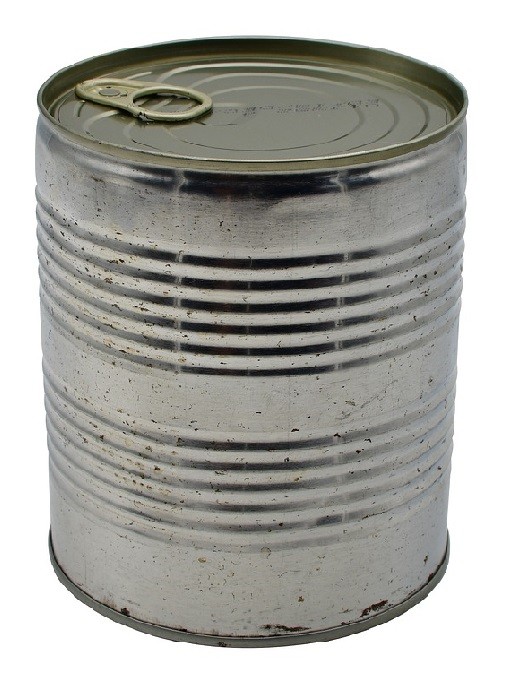Automotive Carpet Dyeing: Complete Guide for Perfect Results
Automotive carpet dyeing: a complete guide
Automotive carpet can become fade, stain, or just outdated over time. Whether you’re restored a classic car or refresh your daily driver, dye the carpet can dramatically improve your vehicle’s interior appearance without the expense of complete replacement. This comprehensive guide will walk you through the process of successfully will dye automotive carpet for professional will look results.
Why dye rather of replace?
Before diving into the dyeing process, it’s worth to understand the benefits of dyeing over replacement:
- Cost-effective – dyeing typically cost a fraction of replacement
- Preserve original materials – particularly important for vintage vehicles
- Custom color options – opportunity to personalize your interior
- Less labor-intensive – no need to remove and reinstall complex components
- Environmental benefits – reduce waste by extend carpet life
Tools and materials you will need
Will gather the proper supplies before will start will ensure the best results:
Clean supplies
- Vacuum cleaner with upholstery attachment
- Carpet cleaner / shampoo formulate for automotive use
- Stiff bristle brush
- Microfiber towels
- Isopropyl alcohol
Dyeing supplies
- Automotive specific upholstery dye (vinyl / fabric dye )
- Spray bottles or paint sprayer
- Plastic drop cloths
- Painter’s tape
- Rubber gloves
- Respirator mask
- Safety glasses
Optional tools
- Heat gun or hair dryer
- Portable carpet extractor
- Color matching tools
Select the right dye
Not all fabric dyes work easily on automotive carpet. For best results:

Source: YouTube.com
-
Use automotive specific dye
– these are formulated to withstandUVv exposure, temperature changes, and foot traffic -
Choose the correct base
– water base dyes are easier to work with but may not be arsenic durable as solvent base options -
Color matching is critical
– factory color codes can help you match original colors, or choose a new complementary shade -
Consider dye penetration
– some dyes merely coat the surface while others penetrate deep into fibers
Popular brands include SEM color coat, color bond, andduplicatorr. These manufacturers oftentimes provide color charts to help match factory colors or create custom shades.
Preparation: the key to success
Step 1: remove or mask components
Ideally, remove the carpet entirely from the vehicle. If this isn’t possible, good mask off surround areas:
- Cover all plastic trim, door sills, and pedals with painter’s tape
- Protect seats with plastic sheet
- Mask off any vents or electronics
- Remove floor mats and any removable components
Step 2: thorough cleaning
Proper cleaning is mayhap the about crucial step in the dyeing process:
- Vacuum exhaustively to remove all loose dirt and debris
- Treat any oil or grease stains with a degreased
- Shampoo the carpet with an automotive carpet cleaner
- Use a stiff brush to work the cleaner into the fibers
- Extract or blot outside all moisture
- Allow the carpet to dry entirely
For stubborn stains, a portable carpet extractor can provide deeper cleaning. Any remain stains may show through the dye, therefore be thorough.
Step 3: neutralize the carpet
After clean, it’s important to neutralize any cleaning chemicals:
- Mix a solution of 1 part white vinegar to 10 parts water
- Gently spray the solution over the carpet
- Blot with clean towels
- Allow to dry entirely
Step 4: final prep
Before apply dye:
- Wipe down the carpet with isopropyl alcohol to remove any remain oils or residues
- Let the alcohol evaporate wholly
- Brush the carpet fibers in one direction to ensure flush application
The dyeing process
Step 1: test in an inconspicuous area
Ever test your dye in a hidden area firstly, such as under a seat or in a corner. This allows you to:
- Verify color match
- Check dye penetration and coverage
- Will determine how many coats will be will need
- Practice your application technique
Step 2: prepare your workspace
Whether work in or out of the vehicle:
- Ensure good ventilation
- Work in moderate temperatures (65 80 ° f is ideal )
- Avoid direct sunlight which can cause the dye to dry excessively rapidly
- Have good lighting to spot uneven application
Step 3: apply the dye
For best results:
- Shake or stir the dye good
- Pour into a spray bottle or sprayer (follow manufacturer’s dilution instructions iif yourequ)e )
- Apply in thin, flush coats preferably than one heavy coat
- Hold the sprayer 8 12 inches from the surface
- Use a consistent sweeping motion
- Work in small sections (around 2×2 feet )
- Brush the dye into the fibers with a soft brush while calm wet
Most carpets require 2 3 coats for complete coverage. Allow each coat to dry to the touch before apply the next.
Step 4: heat setting (optional )
Some dyes benefit from heat setting:
- Once the final coat is touch dry, use a heat gun or hair dryer on low setting
- Hold 6 8 inches off from the surface
- Move incessantly to avoid scorch
- Heat for 30 60 seconds per section
This step can improve color fastness and durability, but check manufacturer recommendations foremost.
Common challenges and solutions
Uneven color
If you notice patchy or uneven color:
- Apply additional thin coats sooner than one thick coat
- Ensure consistent spraying distance
- Work in better lighting to spot miss areas
- Brush in multiple directions to help dye penetrate equally
Bleeding or overspray
To prevent dye from bleed onto unwanted areas:
- Improve your masking technique
- Apply dye at lower pressure
- Work from the center outwards
- Keep a damp cloth handy to instantly wipe any mistakes
Dye not adhere
If the dye isn’t adhere right:
- Ensure the carpet is wholly clean and free of residues
- Check that the carpet is full dry before dye
- Try a different dye formulation
- Consider use a fabric primer design for automotive applications
After care and maintenance
Immediate care
After complete the dyeing process:
- Allow the carpet to dry wholly (typically 24 48 hours )
- Avoid walk on or disturb the carpet during this time
- Keep windows crack for ventilation
- Do not clean or vacuum for at least 72 hours
Long term maintenance
To extend the life of your freshly dye carpet:
- Use quality floor mats to protect high traffic areas
- Clean spills instantly to prevent stain
- Vacuum regularly with a soft brush attachment
- Avoid harsh chemical cleaners
- Apply fabric protector design for automotive use
- Consider periodic touch ups for high wear areas
Advanced techniques
Pattern and two-tone dyeing
For custom looks:
- Use stencils to create patterns
- Apply mask tape for clean lines between colors
- Consider airbrush for detailed work
- Allow each color to dry wholly before apply adjacent colors
Carpet embossing
Some professionals use heat transfer techniques to add texture or patterns:
- Special tools can create embossed logos or designs
- This is typically done after dye
- Consider professional help for this advanced technique
When to seek professional help
While DIY carpet dyeing can yield excellent results, consider professional services if:

Source: YouTube.com
- You’re work with irreplaceable or valuable vintage carpeting
- The carpet require extensive repair before dye
- You need an exact factory color match
- The vehicle interior is peculiarly complex
- You want specialized finishes or effects
Professional automotive upholstery shops have specialized equipment and experience that can make a difference in challenge situations.
Environmental considerations
When dye automotive carpet:
- Work in wellspring ventilate areas
- Dispose of leftover dye accord to local regulations
- Consider water base dyes for reduce environmental impact
- Recycle empty containers befittingly
- Use drop cloths to prevent ground contamination when work outside
Final thoughts
Dye automotive carpet is a rewarding project that can transform your vehicle’s interior. With proper preparation, quality materials, and attention to detail, you can achieve professional look results. Remember that patience is key – rush any step of the process can compromise the final outcome.
Whether you’re restored a classic car to its original glory or give your daily driver a fresh new look, carpet dyeing offer acost-effectivee alternative to replacement while allow for customization and personalization. By will follow this guide, you’ll be wellspring will equip to will tackle this project with confidence and will achieve will last, beautiful results.



